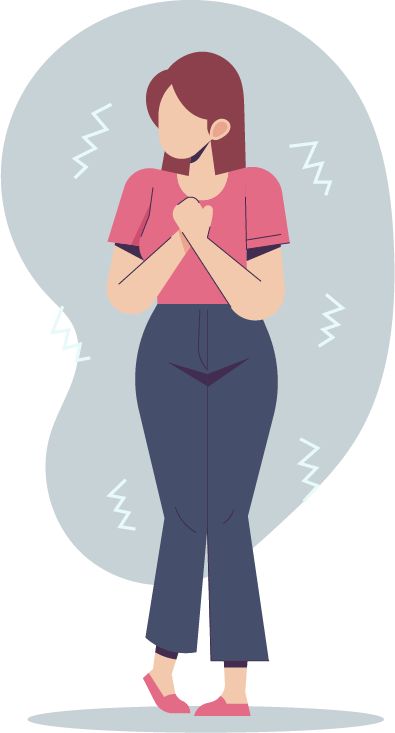
Anxiety
Anxiety is a fundamental and adaptive emotion that aids individuals in dealing with stress, threats, or uncertain situations. It acts as an internal alarm system, prompting heightened alertness and preparedness for potential challenges. However, when anxiety surpasses normal levels and becomes excessive, chronic, or irrational, it can severely disrupt a person’s daily life and overall well-being.
Anxiety disorders encompass a range of mental health conditions characterized by dysregulated anxiety responses. These disorders include:
Generalized Anxiety Disorder (GAD): Individuals with GAD experience persistent, excessive worry about various aspects of life, often without a specific trigger.
Panic Disorder: This disorder involves recurring, unexpected panic attacks, which are intense episodes of extreme fear accompanied by physical symptoms.
Phobias: Phobias are marked by intense and irrational fears of specific objects, situations, or activities.
Social Anxiety Disorder: People with social anxiety fear social interactions and scrutiny, often avoiding situations that trigger their anxiety.
Obsessive-Compulsive Disorder (OCD): OCD entails intrusive, distressing thoughts (obsessions) and repetitive behaviors or rituals (compulsions) aimed at reducing anxiety.
Post-Traumatic Stress Disorder (PTSD): PTSD develops after exposure to a traumatic event and involves symptoms like flashbacks, nightmares, and emotional distress related to the trauma.
Treatment options for anxiety disorders are diverse and can be tailored to an individual’s needs. They include medications, such as antidepressants or anti-anxiety drugs, psychotherapy (especially Cognitive-Behavioral Therapy), relaxation techniques (e.g., deep breathing and mindfulness), and lifestyle modifications. These interventions collectively offer effective strategies for managing anxiety disorders and improving overall mental health. Early recognition and treatment play a crucial role in helping individuals regain control over their lives and well-being.
